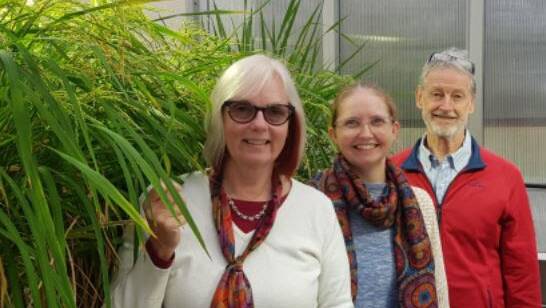
AUSTRALIAN plant researchers will be part of a global scientific project looking to improve drought and heat resilience in wheat.
Staff from Flinders University in Adelaide, together with representatives from Queensland-based plant breeder Longreach will work together with on the $2.78 million project, led by the US-based Washington State University.
The Flinders University and Longreach researchers will sample South Australian wheat, both the plants in-crop and grain, which will then be investigated to see if there are any genes that could be transferred that could improve heat and drought tolerance.
They will screen a number of different wheat varieties in multiple locations in South Australia, looking for stress resilient cultivars and genetic markers in Australian field conditions and comparing them with findings from the international field sites.
Flinders molecular science and technology researcher Crystal Sweetman said the chance to work with international researchers was a great opportunity and said the project could yield major benefits for Aussie growers, who consistently nominate heat and drought as their two major abiotic stresses.
"This is a fantastic opportunity. We hope to identify drought and heat tolerance mechanisms that are important not only in Australia, but across a range of geographical locations," Dr Sweetman said.
Central to the research will be identifying genes that help fight against toxic chemicals created during times of plant stress.
Increasing heat accompanied by low soil moisture content also makes plants produce highly toxic chemicals known as reactive oxygen species (ROS), which in turn lowers yield.
The new research is targeting the genetic markers which correlate with lower ROS production.
If those markers are found, then breeding programs can exploit those to develop varieties with reduced damage from reactive oxygen species.
This project features test sites in Washington, Mexico and Australia. The next step will add locations in Kazakhstan and Ukraine.
Researchers are expecting highly complex challenges in unlocking the correct genes.
"There's no simple way to find out how plants cope with increased heat and drought conditions at the genetic level," said lead investigator Andrei Smertenko, from WSU's Institute of Biological Chemistry.
"Discovery of the resiliency genes is difficult because chemical reactions inside plants are hard to observe," Ass Prof Smertenko said.


